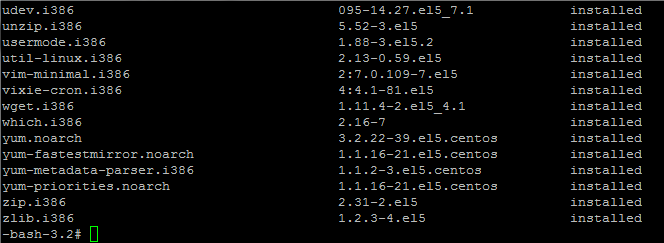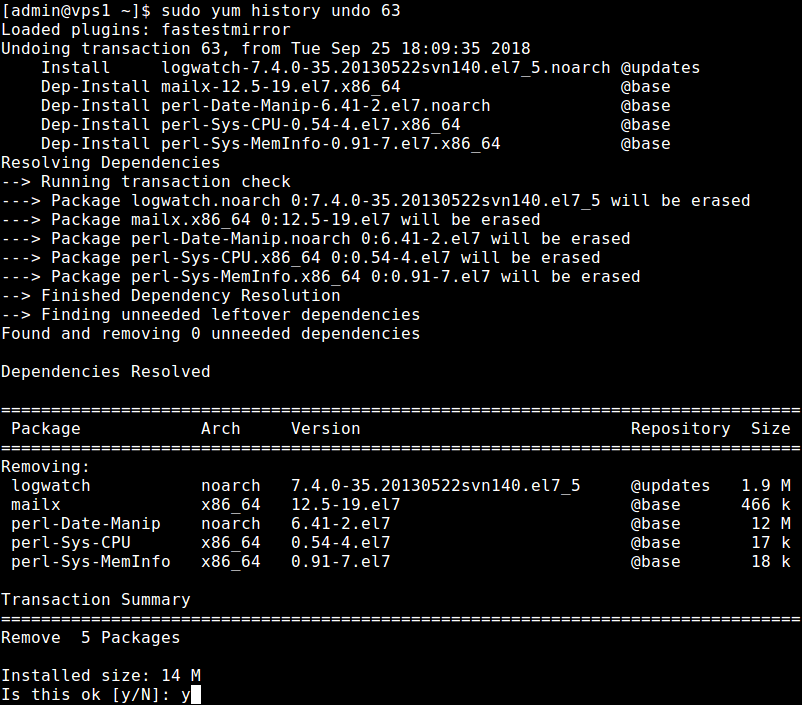
If the main obsoletes configure option is true (default) or the -obsoletes flag is present, yum will include package obsoletes in its calculations this makes it better for distro-version changes, for example: upgrading from somelinux 8.0 to somelinux 9.

update operates on groups, files, provides and filelists just like the " install" command. If the packages or globs specified match to packages that are not currently installed then update will not install them. While updating packages, yum will ensure that all dependencies are satisfied. If one or more packages or package globs are specified, yum will only update the listed packages. If run without any packages, update will update every currently installed package. Also, note that for filelists and wildcards will match multiple packages.

If the name doesn't match a package, then package "provides" are searched (e.g., " _sqlitecache.so()(64bit)") as are filelists (e.g., " /usr/bin/yum"). If the name is a file, then install works like localinstall. If the name starts with a " -" character, then a search is done within the transaction and any matches are removed. If the name starts with an character the rest of the name is used as though passed to the groupinstall command. If no package matches the given package name(s), they are assumed to be a shell glob and any matches are then installed. Used to install the latest version of a package or group of packages while ensuring that all dependencies are satisfied.

Unless the -help or -h option is given, one of the above commands must be present. Syntax yum Ĭommand may be one of: install package1 update update-to check-update upgrade upgrade-to distribution-synchronization remove | erase package1 list info provides | whatprovides feature1 clean makecache groups search string1 shell resolvedep dep1 reinstall package1 downgrade package1 deplist package1 repolist version history check help The yum command is similar to other high level package managers like apt-get and smart. It can also perform installation of new packages, removal of old packages and perform queries on the installed or available packages among other commands/services (see below). It can automatically perform system updates, including dependency analysis and obsolete processing based on " repository" metadata.

Yum stands for "Yellowdog Updater Modified".


 0 kommentar(er)
0 kommentar(er)
